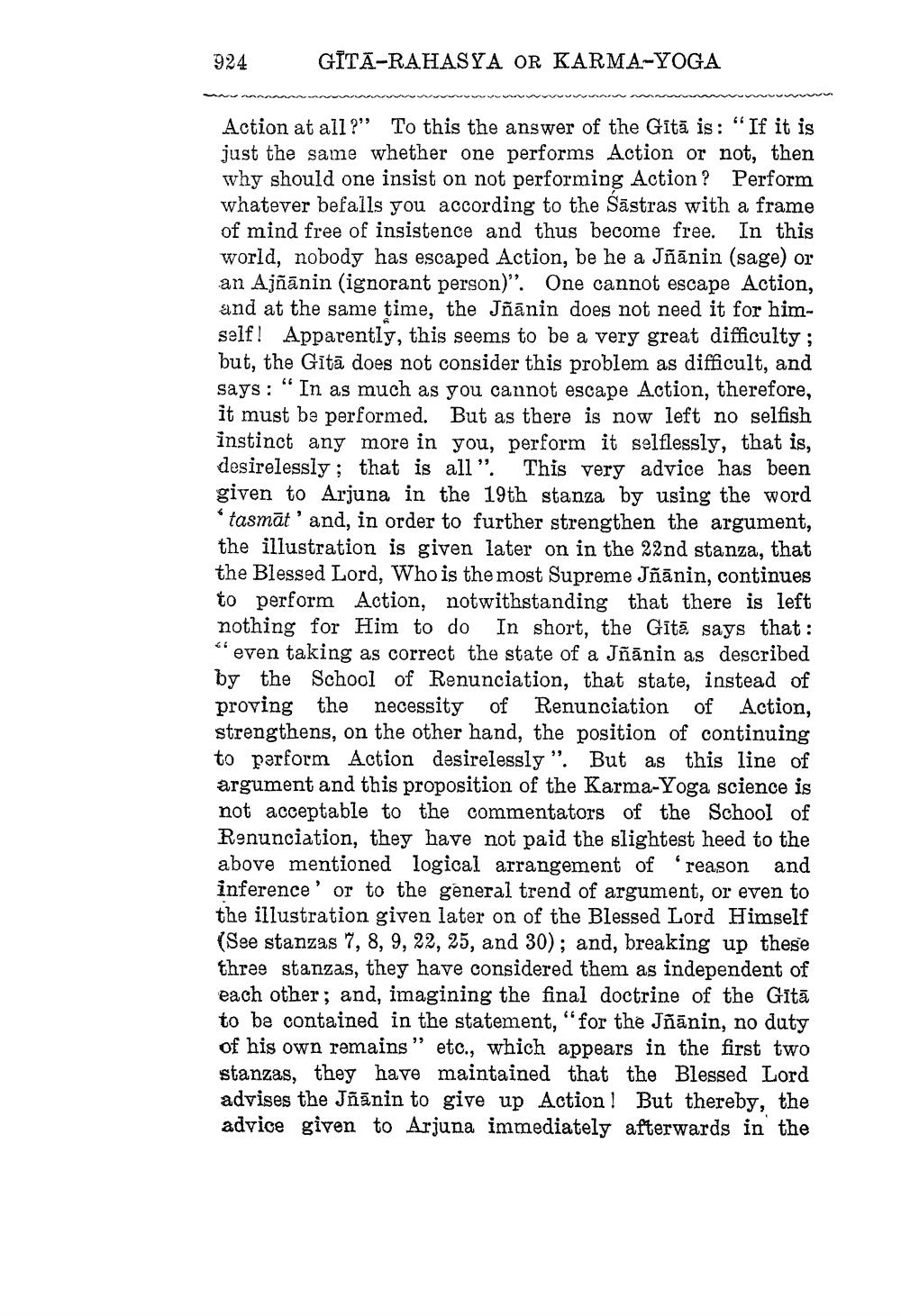________________
924
GITA-RAHASYA OR KARMA-YOGA
Action at all?" To this the answer of the Gitā is: “If it is just the same whether one performs Action or not, then why should one insist on not performing Action? Perform whatever befalls you according to the Sāstras with a frame of mind free of insistence and thus become free. In this world, nobody has escaped Action, be he a Jñānin (sage) or an Ajñānin (ignorant person)". One cannot escape Action, and at the same time, the Jñānin does not need it for himself! Apparently, this seems to be a very great difficulty; but, the Gītā does not consider this problem as difficult, and says: “In as much as you cannot escape Action, therefore, it must be performed. But as there is now left no selfish instinct any more in you, perform it selflessly, that is, desirelessly; that is all". This very advice has been given to Arjuna in the 19th stanza by using the word *tasmāt' and, in order to further strengthen the argument, the illustration is given later on in the 22nd stanza, that the Blessed Lord, Who is the most Supreme Jñānin, continues to perform Action, notwithstanding that there is left nothing for Him to do In short, the Gitä says that: “even taking as correct the state of a Jñānin as described by the School of Renunciation, that state, instead of proving the necessity of Renunciation of Action, strengthens, on the other hand, the position of continuing to perform Action desirelessly”. But as this line of argument and this proposition of the Karma-Yoga science is not acceptable to the commentators of the School of Renunciation, they have not paid the slightest heed to the above mentioned logical arrangement of 'reason and inference' or to the general trend of argument, or even to the illustration given later on of the Blessed Lord Himself (See stanzas 7, 8, 9, 22, 25, and 30); and, breaking up these three stanzas, they have considered them as independent of each other; and, imagining the final doctrine of the Gītā to be contained in the statement, "for the Jñānin, no duty of his own remains" etc., which appears in the first two stanzas, they have maintained that the Blessed Lord advises the Jñānin to give up Action! But thereby, the advice given to Arjuna immediately afterwards in the




